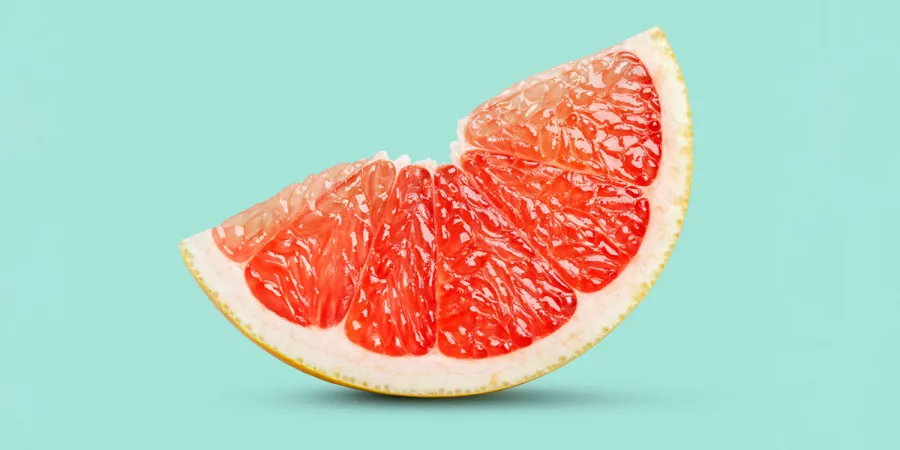
Discover 9 Surprising High-Protein Fruits to Boost Your Muscle Gains and Shed Pounds!
2025-01-16
Author: Jessica Wong
When it comes to building muscle and losing weight, fruits might not be the first thing that comes to mind. Surprisingly, some fruits can contribute a healthy dose of protein to your diet, along with essential fiber, vitamins, and antioxidants. It’s time to rethink the role of fruit in your fitness journey!
Protein plays a key role in muscle repair, satiety, and overall health. While high-protein diets have been favored for their weight loss benefits, the rising popularity of plant-based eating is reshaping our understanding of nutrition. Registered dietitian Natalie Rizzo emphasizes that although fruits are generally lower in protein compared to legumes, nuts, and seeds, they still have their place on your plate.
Rizzo notes, "Every gram of protein counts, especially for those on a plant-forward diet. Most individuals require at least 20 grams of protein at each meal." Not only do fruits provide energy thanks to their naturally occurring sugars, but they also come packed with vital nutrients such as vitamins A, C, E, and D, as well as potassium, magnesium, and dietary fiber.
While Rizzo views the protein found in fruits as supplemental rather than a primary source, several fruits stand out for their protein content. Here are the top nine high-protein fruits to incorporate into your diet, each offering at least 1 gram of protein per serving:
1. Passion Fruit
**Protein Count**: 5 grams per cup. With its aromatic jelly-like flesh and tough outer rind, passion fruit is a tropical delight rich in fiber, calcium, and vitamins A and C. Enjoy it raw or as a topping for yogurt.
2. Jackfruit
**Protein Count**: 2.8 grams per cup (sliced raw). Renowned for its meat-like texture when unripe, jackfruit is a fantastic meat alternative in plant-based diets. Whether barbecued or sautéed, it adds a unique flavor to your meals.
3. Pomegranate
**Protein Count**: 2.9 grams per cup (arils). The luscious ruby-red seeds of pomegranate are not only packed with antioxidants but also contain anti-inflammatory fatty acids beneficial for heart health.
4. Apricots
**Protein Count**: 2.3 grams per cup (fresh), 4.4 grams per cup (dried). Beyond their fiber and vitamins, apricots are linked to inflammation reduction and cancer prevention, making them a powerhouse of nutrients.
5. Blackberries
**Protein Count**: 2 grams per cup. Rich in antioxidants that may lower cancer risk, blackberries also support gut health with their high fiber content. Their deep color signifies their abundant nutrients.
6. Guava
**Protein Count**: 1.4 grams per fruit. This tropical delight boasts high levels of vitamin C and fiber. Guava’s sweet-tart flavor can elevate smoothies, salads, or be enjoyed straight from the tree!
7. Raisins
**Protein Count**: 1.4 grams per 1.5-ounce serving. These small, sweet snacks are rich in fiber and potassium, known to support heart health and manage blood pressure. Perfect for satisfying cravings!
8. Citrus Fruits
**Protein Count**: 1.2 grams per orange, 2.3 grams per grapefruit. Not just a vitamin C powerhouse, citrus fruits keep you hydrated and promote satiety due to their high water content, making them an ideal snack.
9. Cantaloupe
**Protein Count**: 1.3 grams per cup (cubed). This hydrating melon packs vitamin A, crucial for eye health, and can be a fantastic addition to fruit salads or smoothies.
Incorporating these fruits into your diet not only provides protein but also offers numerous health benefits that enhance overall wellness. So, whether you're after muscle gains or looking to shed some pounds, these high-protein fruits can be a delicious and nutritious addition to your meals!




 Brasil (PT)
Brasil (PT)
 Canada (EN)
Canada (EN)
 Chile (ES)
Chile (ES)
 Česko (CS)
Česko (CS)
 대한민국 (KO)
대한민국 (KO)
 España (ES)
España (ES)
 France (FR)
France (FR)
 Hong Kong (EN)
Hong Kong (EN)
 Italia (IT)
Italia (IT)
 日本 (JA)
日本 (JA)
 Magyarország (HU)
Magyarország (HU)
 Norge (NO)
Norge (NO)
 Polska (PL)
Polska (PL)
 Schweiz (DE)
Schweiz (DE)
 Singapore (EN)
Singapore (EN)
 Sverige (SV)
Sverige (SV)
 Suomi (FI)
Suomi (FI)
 Türkiye (TR)
Türkiye (TR)
 الإمارات العربية المتحدة (AR)
الإمارات العربية المتحدة (AR)